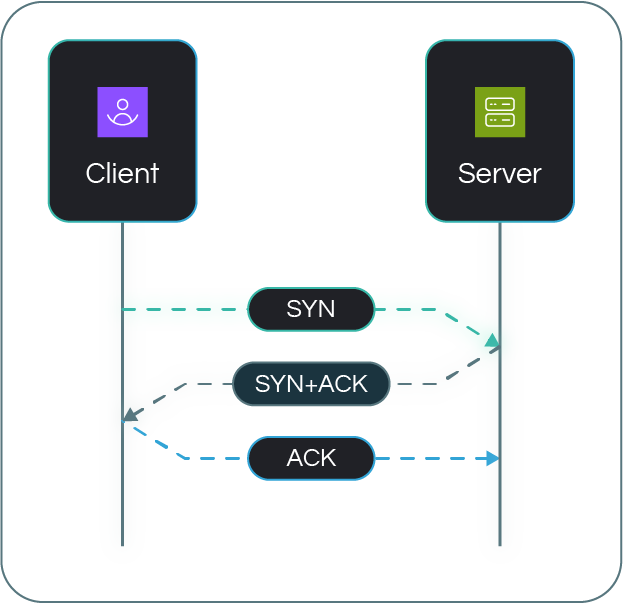TCP Protocol
TCP Protocol
Introduction
Zilla implements Transmission Control Protocol (TCP) as a first-class protocol binding, designed to enable reliable, high-performance communication between systems in distributed environments. This empowers Zilla to handle bidirectional, low-latency, and stream-based data exchange, making it ideal for services that require fast and dependable connections, such as IoT devices, real-time data pipelines, and microservices that need direct, high-throughput communication.
TCP Key Features
- Connection-Oriented Communication - A TCP connection must be established before data transmission using a three-way handshake to ensures both parties are ready to communicate.
- Reliable - TCP guarantees that all sent data is received correctly and in order by using acknowledgments and retransmissions to handle packet loss or errors.
- Flow Control - TCP employs a sliding window mechanism to prevent overwhelming the receiver.
- Congestion Control - TCP dynamically adjusts the data transmission rate based on network conditions.
- Error Detection and Recovery - TCP uses checksums to detect errors in transmitted data so that if an error is found, it triggers retransmission of the affected segment.

Security
Securing TCP with TLS
TCP, a foundational transport protocol, ensures reliable data transmission but lacks built-in encryption, making it vulnerable to interception and tampering. Encrypting TCP traffic with TLS (Transport Layer Security) enhances security by preventing unauthorized access and protecting against threats like man-in-the-middle (MITM) attacks. By implementing TLS over TCP, applications can establish secure, encrypted communication channels while maintaining data integrity and authentication.
Zilla provides TLS bindings to enforce secure communication over TCP, ensuring that all transmitted data is encrypted. By integrating TLS with Zilla, organizations can enhance security for various TCP-based applications, protecting sensitive information while maintaining reliable and efficient data exchange.
Zilla: Beyond Standard TCP
Zilla acts as a smart gateway that manages both incoming and outgoing TCP connections.
- Handles External Connections: Zilla accepts connections from external clients and routes them to the appropriate internal service, such as a web server or database.
- Routing and Service Mapping: Zilla intelligently routes each connection to the right service based on the request type or destination, ensuring efficient traffic flow.
- TLS Binding for Secure Communication: Zilla supports TLS binding to ensure that both inbound and outbound connections are securely encrypted, protecting sensitive data during transmission.
- Efficient Outbound Communication: When sending data out, Zilla initiates secure and optimized connections to external destinations, ensuring smooth communication.
Zilla: TCP Use Cases
Zilla leverages the power of the TCP protocol to enhance communication and provide efficient proxying and reflection services.
Zilla also improves TCP performance but also enables its use for a wide range of protocols, including HTTP, Kafka, gRPC, MQTT, TLS, and WebSockets (WS).
Reference
tcp binding The tcp support, with server or client behavior.

